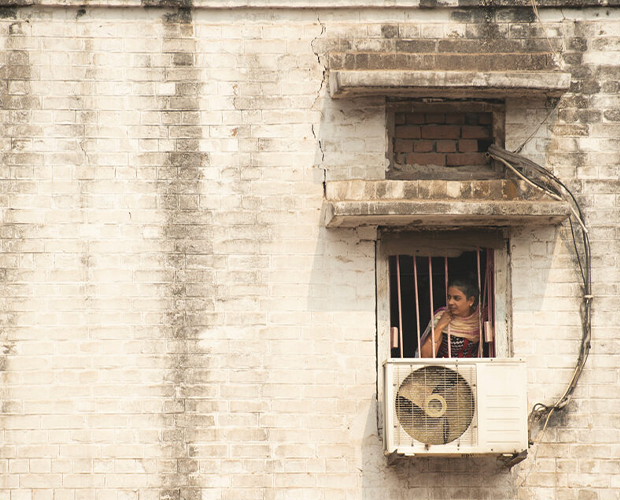Pandemic Lockdowns Had Severe Mental Health Consequences for Women in the Developing World

March 31, 2022 | UC San Diego News
While potentially crucial to preventing the spread of COVID-19, lockdowns are associated with increased rates of depression and anxiety as well as food insecurity among women in India and other parts of the developing world, according to a new research.
The study from the University of California San Diego’s School of Global Policy and Strategy finds that women whose social position may make them more vulnerable – those with daughters and those living in female-headed households – experienced even larger declines in mental health as a result of lockdowns.
The paper, to be published in a forthcoming issue of the Journal of Economic Development, surveyed 1,545 households over the phone in various rural regions throughout Northern India. The surveys took place in fall 2019, before the pandemic and in August 2020, near the height of the first COVID-19 wave in India. Certain villages and districts had varying containment policies, which allowed the researchers to compare health outcomes of women who experienced lockdowns for several months to those who experienced zero levels of lockdowns.
The authors took many factors into consideration in their analysis including COVID cases, hospitalizations and deaths from the novel coronavirus.
For surveyed women, moving from zero to average levels of lockdowns is associated with a 38 percent increase in depression, a 44 percent increase in anxiety and a 73 percent increase in exhaustion.
“Not having access to access to work and socialization outside the home can be very detrimental for women’s mental health in developing countries,” said study co-author Gaurav Khanna, assistant professor of economics at the School of Global Policy and Strategy.
The pandemic resulted in dramatic losses of income for women. In the survey, roughly 25 percent of households reduced the number of meals consumed, compared to a normal month. However, these declines primarily impacted women because in many cultures throughout the developing world, women’s food intake is the first be limited when food is scarce.
“We wanted to know the impact lockdowns polices have on women in lower-income countries where there may be limited social safety nets to absorb these shocks,” Khanna added. “As we found in our study, the consequences of lockdown policies are exacerbated for women. We hope policymakers in developing countries and beyond know what the implications are for these policies, especially for those in vulnerable positions because if there is another wave, communities could be faced with similar lockdowns.”
The paper outlines policy recommendations that could help address the mental and physical health consequences experienced by women during the pandemic.
“Policymakers should consider what supportive measures are necessary to limit economic devastation from lockdowns and they should target aid, particularly access to food, to vulnerable households and women,” the authors note.
For example, in certain parts of India, the government did distribute food to rural areas, which helped prevent malnutrition and food insecurity.
Counseling and helpline services offered over-the-phone can also help address the pandemic’s mental health impacts, the authors noted.
While the findings focus on the developing world, they have implications for women all over the world who experience lockdowns.
“We suspect the impact in the U.S. on women and mothers in particular was also exacerbated,” Khanna said. “When kids are not in school, or daycare, the burden usually falls on women because of traditional gender roles with child care. Policymakers should be cognizant of the fact that women are going to be impacted differently by these policies.”

